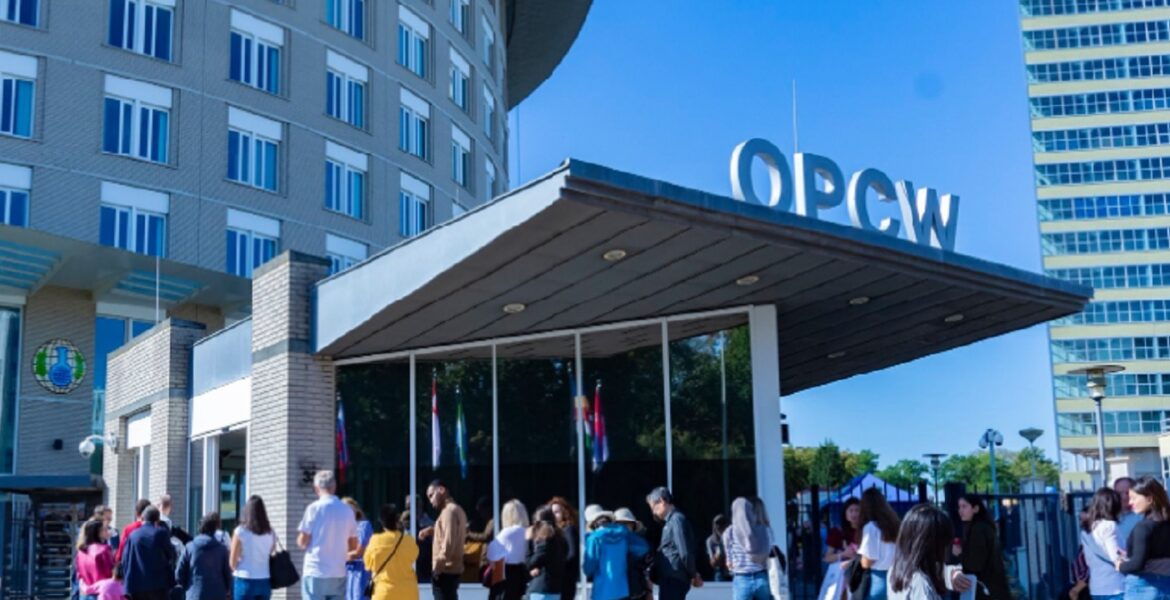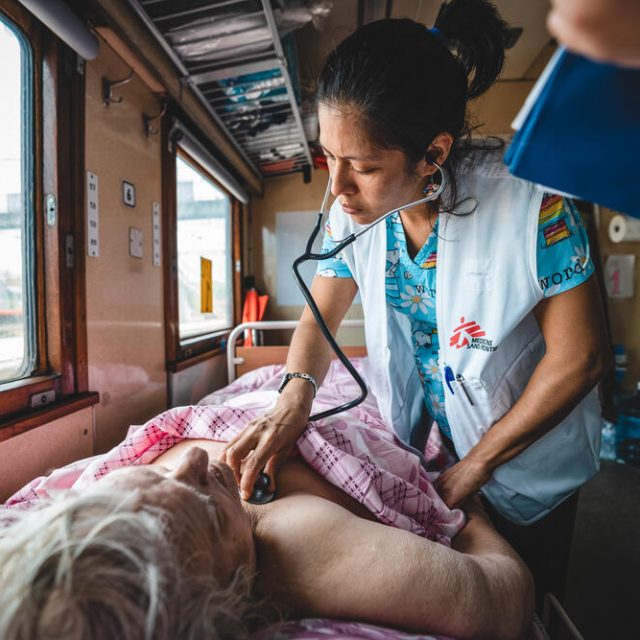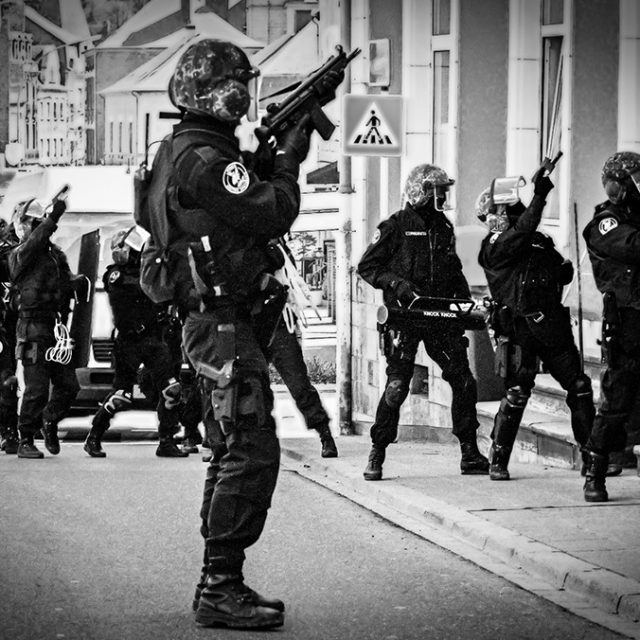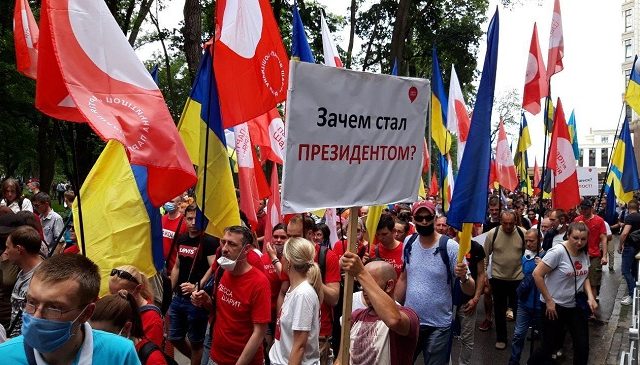On November 18, the Organisation for the Prohibition of Chemical Weapons (OPCW) published a report confirming the use of chemical weapons by Russia during military operations against Ukraine. These actions constitute a severe violation of the Chemical Weapons Convention (CWC), undermine the foundations of international law, and pose new threats to global security.
Experts from the OPCW identified the use of CS tear gas by the Russian military, which is prohibited for use in armed conflict. This substance was found in the debris of a grenade and soil samples collected after an incident on September 20, near the village of Hrushevka in the Dnipropetrovsk region. The investigations involved digital analysis, witness interviews, and the examination of provided samples, all of which confirmed the use of chemical substances. While the OPCW is not authorised to assign blame, the United States has stated that the Russian military has systematically used tear gas for trench clearing. The findings will be discussed at the OPCW’s Conference of State Parties, scheduled for November 27 to December 1, in The Hague, where representatives from 193 member states will meet.
Since the start of Russia’s barbaric invasion of Ukraine, Ukrainian forces have reported instances of Russian troops using hazardous chemicals. However, since February 2023, such chemical use has become systematic. From February 2023 to October 2024, there were 4,613 recorded instances of chemical munitions being used, indicating a consistent violation of international law. In October 2024 alone, Russian troops deployed chemical weapons 323 times, including the use of drones to drop chemical-laden munitions and artillery shelling, highlighting the scale and cynicism of these crimes.
The Russian military has employed a wide range of chemical weapons, including gas grenades that cause severe irritation to the respiratory system and skin, improvised explosive devices filled with chemical irritants, and banned tear gases like chloropicrin, CN, and CS, as well as artillery shells containing chemical agents—blatant violations of the laws of warfare. Many Ukrainian soldiers and civilians have sought medical treatment for chemical poisoning, including respiratory injuries, skin burns, and severe allergic reactions.
Russia’s actions represent a direct violation of the foundational provisions of the Chemical Weapons Convention, although Russia has officially ratified it. Article 1, Paragraph 5 of the Convention explicitly prohibits using chemical substances for military purposes. Despite this, Russia continues to actively deploy chemical weapons, demonstrating a flagrant disregard for international law.
Russia, which claimed to have destroyed its stockpiles of chemical weapons in 2017, has engaged in disinformation tactics. It accuses Ukraine of allegedly using chemical agents, attempting to divert international attention from its crimes. This not only underscores the Kremlin’s militaristic aggression but also its inability to act within the bounds of international law.
The OPCW’s report on Russia’s use of chemical weapons in Ukraine has drawn widespread condemnation from the international community. The United States, the United Kingdom, the European Union, and several other nations have already imposed sanctions on Russia for using banned chemical substances, demonstrating their commitment to upholding international law and humanitarian standards.
As an active member of the European Union, Belgium firmly condemns Russia’s actions. Since the start of the full-scale invasion, Belgium has supported existing sanctions and contributed to their strengthening. Measures adopted include restrictions on the export of dual-use goods, freezing the assets of Russian oligarchs and state-owned companies, and discussing new steps to counter the use of chemical weapons. Belgium is committed to decisive actions and stands in solidarity with Ukraine, advocating for justice and the reinforcement of international law principles.
These measures are aimed at condemning Russia’s gross violation of the Chemical Weapons Convention, drawing international attention to its crimes, and reducing its capacity to continue using prohibited substances. However, these efforts must not stop here.
The international community needs to act even more decisively, calling for more countries to join sanctions and condemn Russia for using chemical weapons. This is necessary not only to protect the international legal order but also to prevent further threats to global security. Only coordinated pressure from the worldwide community can stop the crimes committed by the Kremlin and ensure justice for the victims.
In 2024, Russia was not elected to the OPCW Executive Council for the first time in its history, a consequence of its consistent violation of international norms. Russia also lost membership in several other international organizations, including UNESCO, where it lost its position in the governing bodies, the International Maritime Organization, which rejected its candidacy for 2024-2025, and the United Nations Economic and Social Council, where Russia failed to be elected on 1 July.
Russia’s systematic use of chemical weapons is part of its aggressive strategy to undermine the international legal order. This is evident not only in its direct aggression against Ukraine but also in its attempts to erode the foundations of international cooperation. Russia shows a disregard for human life and humanitarian law.
However, the Kremlin continues to actively seek participation in international organizations despite its crimes. For example, Russia applied for election to the OPCW Executive Council for 2025-2027, which has outraged the international community. A country that systematically uses chemical weapons has no moral right to hold positions in the governing bodies of international organizations.
To prevent further violations and restore justice, it is necessary to continue isolating Russia at all levels. Increasing sanctions pressure and excluding it from international organizations where it spreads propaganda are crucial steps. Supporting investigations into the use of chemical weapons and holding those responsible accountable should remain a priority. Russia’s use of chemical weapons represents not only a severe violation of international norms but also a serious threat to global security. Decisive actions by the international community will help stop aggression, protect the foundations of international law, and create conditions for peace based on respect for human dignity and justice.




